Best Way To Invest Money In Your Property
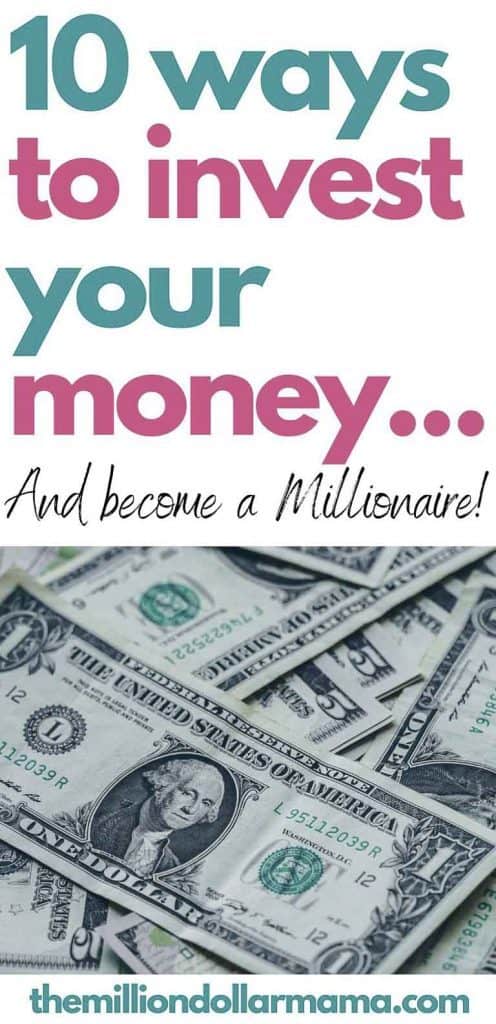
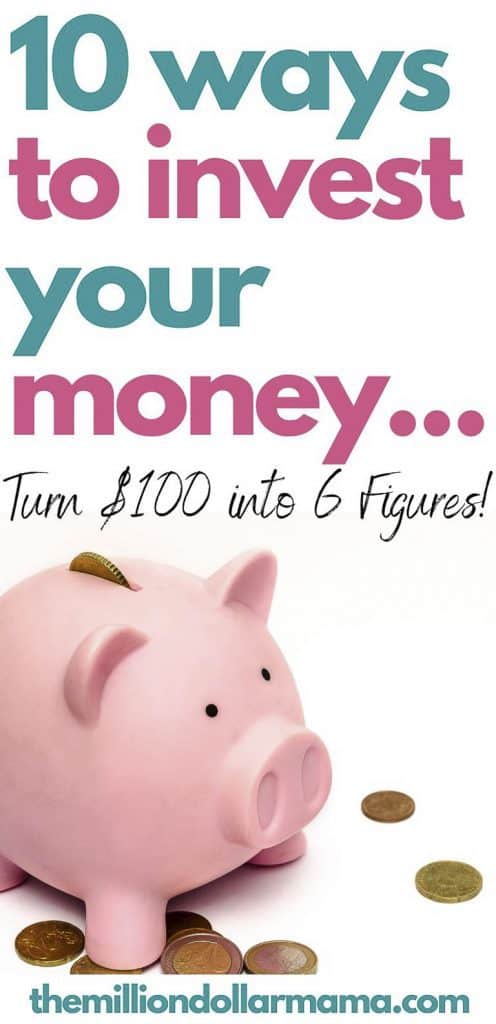

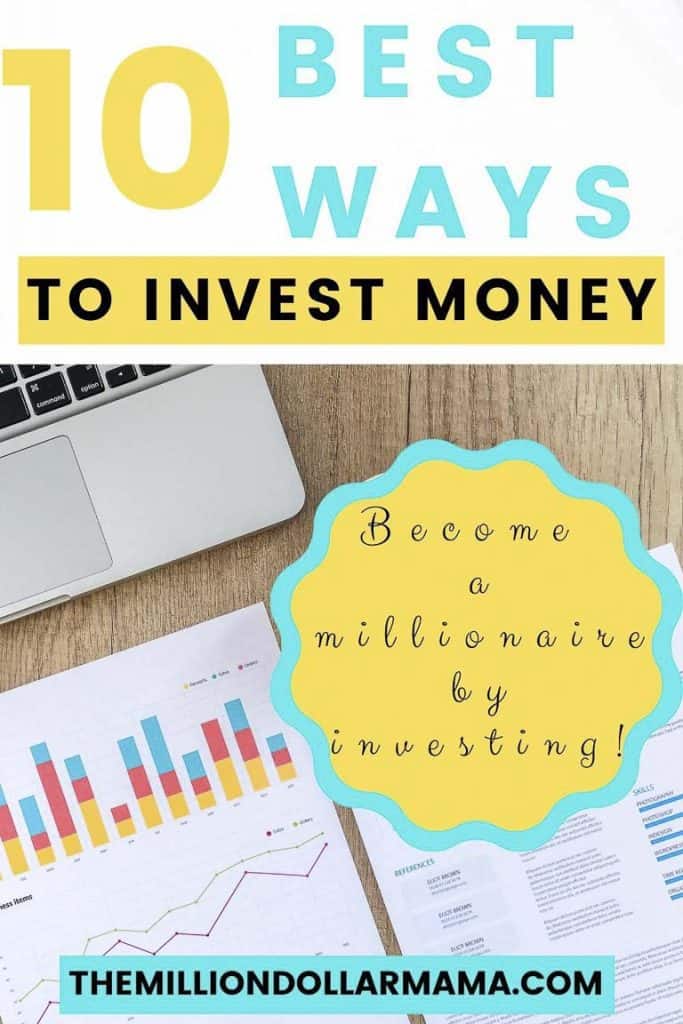

10 ways you can start investing your money to grow wealth today! Easy, simple ways to get started on that journey to wealth and financial freedom!
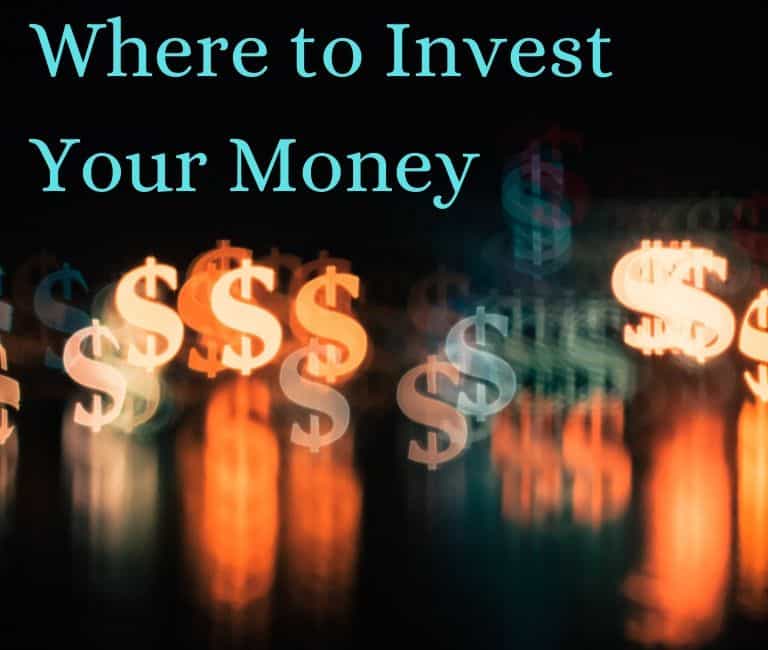
It can be overwhelming trying to decide where best to invest your money. Everyone around you is exclaiming "you need to invest, you need to invest," but you just don't know what to do.
Because there are SO. MANY. OPTIONS. I completely understand how it can be so intimidating.
For many years, I only knew two ways to invest: save money in a bank account and put money in my 401K. BTW, saving money in a bank account is NOT investing (you'll see why when you keep reading).
My investing has become a little more sophisticated as I've embarked on this journey to financial freedom and I want to share with some things I've learned along the way.
**However, I am not a financial advisor, and none of these tips should be construed as financial advice. Consult an expert for individualized advice.
You should also check out these 5 Common Beliefs About Investing that just aren't true and these Must Know Investment Terms for Beginners as well as learning how to invest while paying off debt.
Why You Should Invest
Lets say you have $100K cash money. If you put it in the bank at .1% interest, at the end of 30 years you have $103K. However, adjusted for 2% inflation, your money would only be worth $57K.
Do I have you attention? In 30 years, your money will be worth LESS than it is today if you leave it in a .1% interest earning account (which is what most regular savings accounts are).
Now let's say you put your money in an index fund (more on those below – keep reading) and average about a 7% return each year. At the end of 30 years, you have about $761K, which equate to $421K when you adjust for inflation. So 30 years from now your $100K will be worth $421K.
That seem like a better investment to me.
Now we can go even further and talk about real estate. Returns on real estate can fluctuate depending on a number of factors, but I will use my own experience here.
Not including the debt pay down I get from my tenants, I get about a 14% return each year on my rental properties. The calculations for this are a bit more complicated, but to simplify it, let's just apply the 14% to the $100K that you have. At the end of 30 years, you will have $5M – which is about $2.8M adjusted for inflation.
What do you think? Are you as excited about this as I am?
A way to get excited about this (if you're not already), is to start tracking your net worth after you've started investing. It is very motivating to watch your investments grow over time while you accumulate a ton of wealth!
A great way to track your net worth is by using Personal Capital. It allows you to connect all your accounts, including credit cards, bank accounts, mortgages, etc. so you can see your whole financial picture. Plus, it's FREE to use.
I use it and absolutely love it. I might even have a small obsession of checking on it every day. Sign up for Personal Capital today and get $20!
Before You Start Investing
To get started investing, you do need to have something to invest. If you still have a lot of high interest non-mortgage debt (credit cards, student loans, etc.), I highly recommend taking steps to become debt free before you start investing. These Five Tips to Help Eliminate Debt will also help you become debt free.
If you're already debt free, you need something to invest. If you're not quite there yet, here are some tips to help you save money:
- 15 Creative Ways to Save Money
- 100+ Simple Ways to Save Money
- 5 Simple Ways to Save Over $8,000 This Year
- 10 Ways to Save Money When Living Paycheck to Paycheck.
I also always recommend having an emergency fund (in cash) of about 6 months of living expenses before you invest…you know, just in case. You never know what can happen, and it feels much better to have that money.
Learn the difference between being rich vs. wealthy.
I lost a job many years ago (there were some circumstances I'll share in a later post) and didn't work for almost 8 months. Luckily I had plenty of savings and never had to worry about money. I promise, having an emergency fund will reduce your level of stress so much.
Set An Investment Goal
You can have both long and short term goals when it comes to investing. When you're doing something like, let's say, saving for a house, you'll likely want to invest in a safer asset like government bonds, CDs or high yield savings accounts.
Investing for retirement or events that will happen many years in the future can stand a little more risk.
But in addition to this, you need to understand your own risk tolerance. The more risk, the more reward. But it's more risk. How comfortable are you losing the money you invest? If it would ruin you, perhaps you should invest in slightly safer investments. If it would suck, but you know you'll make it back, riskier may be the way to go.
It's a personal decision. You'll want to weigh the pros and cons of each investment and determine what works best for you situation.
So decide whether this is short term, college, retirement, a Tesla, a dream home…whatever your goal may be. Write it down. And get to it!

10 Ways to Invest
Once you've got your debt paid off (or close to it), you've got a little money saved (try these short term saving options while saving) and you've identified your goals, you're ready to start investing!
You may also want to take a look at these 10 income producing assets – they are perfect for those looking for financial freedom!
Here are the 10 best ways to invest money.
1. Stocks
If your goal is long term investing, stocks are a great option. There are a few different ways you can invest in stocks 1) individual stocks, 2) mutual funds, 3) index funds and 4) ETFs.
Sites such as Etrade (this is what I use and love how easy the interface is), TD Ameritrade , Merrill Edge , Fidelity , and Ally Invest offer brokerage accounts where you can buy and sell stocks and bonds.
You can even find the best stock research websites to get you started.
Individual Stocks
Sometimes it can be fun to pick individual stocks. You know, companies you like and respect. However, this is not the most effective way of investing in stocks, in my opinion. Very few people have the expertise it takes to really choose a good stock. An educated guess is typically the best you'll get.
That's not to say you can't have success. I own Amazon, Apple and AT&T stocks that paid off for me. But I have some that I sold at a loss too.
Mutual Funds
Mutual funds are an easy way to invest for those that want to turn money management over to a fund manager. You typically invest one sum of money into the fund, and the fund manager manages the fund.
Note mutual funds often contain fees and commissions. Also note, many fund managers do not beat the S&P 500 (meaning they don't provide you with returns that are better than the market), especially after you have paid the fees and commissions (which you have to pay regardless of how your portfolio performs.
Which leads me to …
Index Funds
I love index funds as a way to invest in the stock market. Instead of paying the fees and commission to a fund manager, you are basically buying a fund that has already been indexed to, lets say, the S&P 500. Because there is no manager, the fees are typically far less and results track right along with the market.
Will you beat the market results? Probably not. But this is the best set it and forget it investment strategy to build long term wealth.
ETF (Exchange Traded Funds)
Exchange traded funds are basically index funds that you can buy and sell like a stock. Index funds and mutual funds are only priced at the end of the day. This shouldn't really matter to the everyday investor.
2. Bonds
A bond is basically a loan made to a company. The bond issuer will then pay you back with interest. Bonds are typically seen as safer than stocks.
The safest bonds are US treasury bonds, then state and city government bonds, then corporate bonds.
3. Real Estate
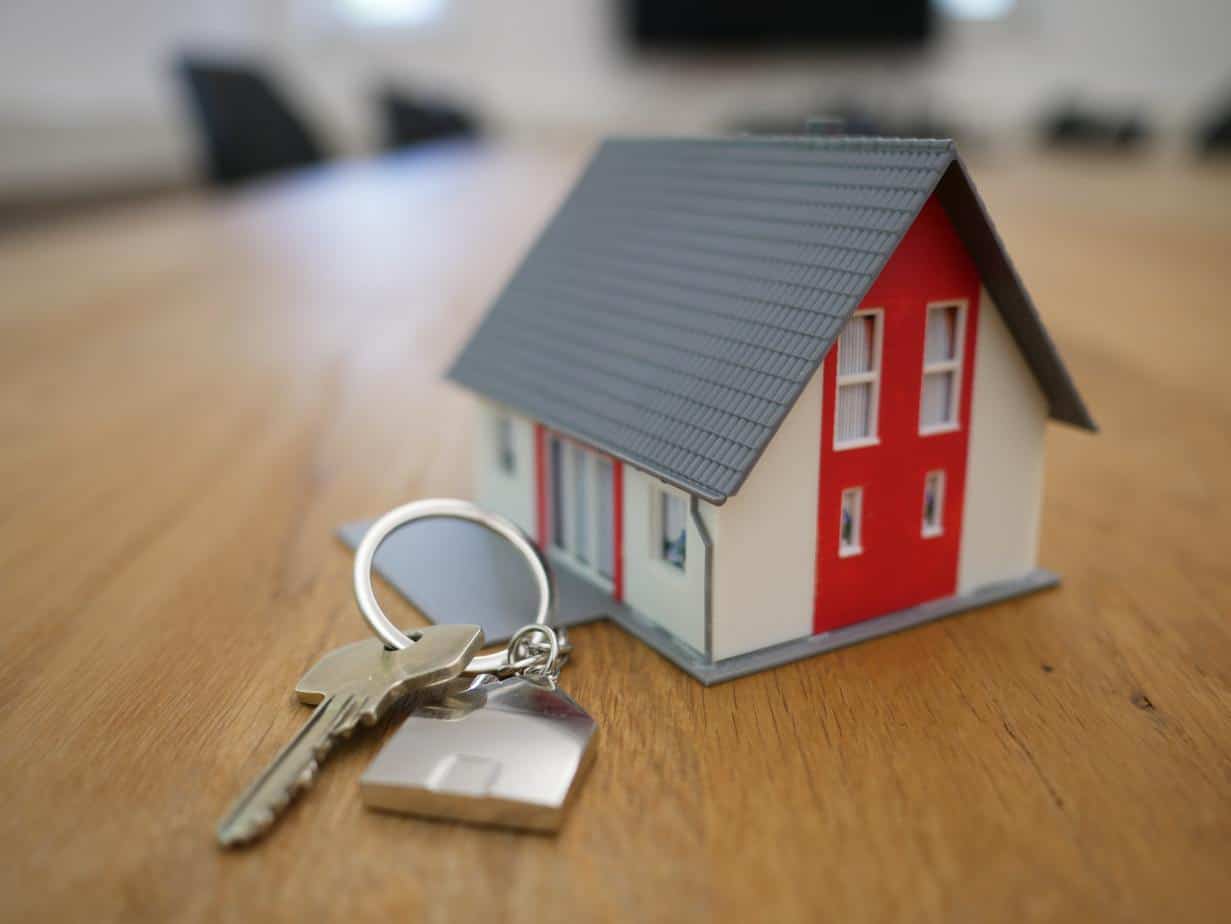
This is my personal favorite investment. From flipping houses (I mean you guys have all seen Flip or Flop, right???), buying rental properties or investing in REITs real estate investments trusts, (like mutual funds for real estate), real estate offers so many different options.
Real estate is a great way to build wealth, especially through rental properties. It can also help you build passive income to aid you on your journey to financial freedom. However, it does take more work than buying a stock through Etrade.
You can learn how to buy an investment property here!
4. Retirement Accounts
If you work a regular 9-5 job, chances are your employer offers a 401K plan. And if you're lucky (I'm not, unfortunately), they will match a certain percentage of your contributions.
If your employer matches, you should be contributing AT LEAST the match amount to your 401K. Don't give up free money!
Within your 401K, the plan will typically offer options such as mutual funds and/or index funds. Normal, employer provided 401K plans typically only allow for these types of investments. But that's ok, we love index funds remember??
If you're under 50, you can also contribute up to $6,000 a year to an IRA ($7,000 if you're 50 or over). There are two types of IRAs (Individual Retirement Account):
Traditional IRA
A traditional IRA allows you to contribute up to the max amount ($6,000 in 2020) in an IRA that can be opened at any of the institutions I mentioned above. I personally have all my investments in Etrade as I've been using it for years and love the ease and the interface.
Contributions to a traditional IRA are pretax (as long as you don't exceed certain income thresholds – check with your accountant). Tax is paid upon distribution of the funds during retirements, likely (but actually hopefully not – more on that later) at a lower tax rate.
Roth IRA
A Roth IRA allows you the same options as a traditional IRA, but the contributions are made after tax. However, all the contributions and growth can be withdrawn tax free at age 59 1/2 (as of June 2020).
I personally prefer a Roth IRA as it offers more flexibility to take withdrawals of contributions without paying taxes (again, talk to your accountant). I also like the idea of paying no taxes in my retirement years as you can't ever count on tax rates being lower than they are in income earning years.
5. Crowdfunding
Crowdfunding is a way that investors, individuals or family members raise capital to invest. For instance, if you want to start a new business, you may request funds from family, friends and other investors to start your venture.
Investors make money through dividend, equity and/or interest payouts, depending on the type of crowdfunding used. Crowdfunding allows you to make small investments in businesses and real estate transactions, who then will pay you a return on your investment.
6. Peer to Peer Lending
There are peer to peer lending platforms such as Lending Club that allows individuals to lend money to other individuals for certain payouts. Basically, peer to peer lending removes the bank from the equation.
Because the bank is no longer involved, it is easier to get funding, albeit at a higher rate of interest. Which is great for investors as you can make 10%+ on loans made in peer to peer networks.
Obviously, as with any investment, there is risk. You may make a loan that doesn't get paid. But Lending Club does a pretty good job of letting you know what the risk is for each investment so you can choose options based on your risk tolerance.
7. Certificates of Deposit (CDs)
CDs, or certificates of deposit, are basically bank accounts that pay a higher interest rates than typical savings accounts. The difference is they are for set period of time. For instance, you can get a 1 year, 5, 10 years or anywhere in between terms.
That means if you take your money out of the CD before the term is up, you will pay penalties. The incentive is for you to keep your money in the CD so you can continue to make interest while the bank is able to continue using your money.
8. Commodities
Commodities are typically natural resources that are traded in bulk. Resources such as agricultural products, precious metals, lumber, foreign currency and fossil fuels are all considered commodities.
Commodities are usually traded at futures rates. For instance, an airline may buy fuel at a current fixed rate to avoid future price increases. Individual investors typically purchase commodities pools, which are similar to mutual funds or ETFs.
9. Cryptocurrencies

Cryptocurrency is a digital currency that is backed by cryptography (think bitcoin). Basically, cryptocurrency can be used to buy goods and services, but most often is used for trading and investing.
Compare cryptocurrency to arcade game tokens or something similar. You must buy the tokens using cash, but the token have a worth. Many people buy them in the hopes the "token" will increase in value as cryptocurrency become more popular due to its security.
I don't personally invest in cryptocurrency because I'll admit I don't have a full understand of it. Learn more about cryptocurrency .
10. High Yield Savings Account
I know, I know, I said letting your money sit in the bank is not an investment. However, sometimes when you're saving for something like, say real estate, you've got to keep your money somewhere.
Also, this is a great place for your emergency fund. High yield savings accounts typically pay anywhere between 1-2% (as of July 2020). Here are some banks that have great options (I prefer Ally and CIT bank out of these, but they are all good options):
- Ally Bank
- CIT Bank
- Citibank
- Synchrony Bank
- Marcus by Goldman Sachs
- Varo
Conclusion
So as you see, there are a number of ways to invest your money. Don't be overwhelmed. I know it seems like a lot at first, but you don't have to do it all at once. Start with what you feel comfortable with, and work up from there.
However, I do recommend getting started so you can begin your journey to financial freedom as soon as possible!
How are you currently investing your money? Leave a comment below and let's talk money!
Best Way To Invest Money In Your Property
Source: https://www.themilliondollarmama.com/10-ways-to-invest/
Posted by: hynesappeappord.blogspot.com

0 Response to "Best Way To Invest Money In Your Property"
Post a Comment